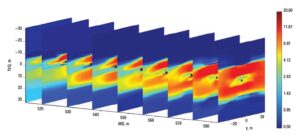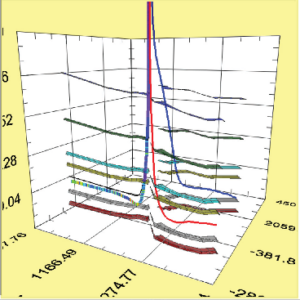- Demo Tester Page-OMCT
- dxecfc
- VIEW ALL- TESTER PAGE
- TECHNOLGY-TESTER PAGE
- TRAINING-TESTER PAGE
- CONUSLTING-TESTER PAGE
- UI XI Design Software-tester
- Game App Development-tester
- Mobile App Development-tester
- Data Management Service-tester
- Website Development-tester
- API Development Services-tester
- demo-tester-page-AR
- ui-xi-design-software-tester-AR
- game-app-development-tester-AR
- mobile-app-development-tester-AR
- data-management-service-tester-AR
- website-development-tester-AR
- api-development-services-tester-AR
- Payment Terms & Conditions
- Home Page
- Contacts
- Blog
- About Us
- Typography
- Blocks
- Home Page – English
OrientMCT
Advanced Geosteering

The Advanced Geosteering course is designed to provide participants with in-depth knowledge and skills in the field of geosteering, which involves real-time wellbore placement and navigation within hydrocarbon reservoirs. Geosteering plays a crucial role in optimizing reservoir exposure, maximizing production rates, and improving overall well performance.
Throughout the course, participants will learn about the principles, methods, and technologies used in geosteering operations. They will understand how geological and petrophysical data, such as well logs, seismic data, and drilling parameters, are integrated and analyzed to make informed decisions in real-time while drilling.
Participants will explore advanced techniques for reservoir characterization, including formation evaluation, lithology identification, and structural interpretation. They will learn how to interpret and integrate well logs, mud logs, and other data sources to identify reservoir boundaries, hydrocarbon-bearing zones, and potential drilling hazards.
The course will cover the use of advanced tools and technologies for geosteering, such as measurement while drilling (MWD) and logging while drilling (LWD) systems. Participants will gain insights into the data acquisition process, quality control measures, and interpretation techniques to ensure accurate and reliable real-time formation evaluation.
Participants will learn about different geosteering methodologies, including stratigraphic, structural, and combination approaches. They will understand how to apply these methodologies to optimize wellbore placement and navigate within complex reservoir architectures, including thin beds, faulted zones, and reservoir compartmentalization.
The course will emphasize the importance of communication and collaboration between geologists, drilling engineers, and wellsite personnel in geosteering operations. Participants will learn how to effectively communicate and integrate geological interpretations, drilling parameters, and real-time data to make timely decisions and adjustments during drilling operations.
Safety considerations are paramount in geosteering, and the course will cover the identification and mitigation of potential drilling hazards, such as drilling into water zones, pressure differentials, and wellbore stability issues. Participants will also learn about contingency planning, risk assessment, and well control procedures specific to geosteering operations.

By the end of the Advanced Geosteering course, participants will have a comprehensive understanding of the principles, methodologies, and technologies involved in geosteering. They will be equipped with the skills to interpret geological data, make real-time drilling decisions, and optimize wellbore placement within hydrocarbon reservoirs. This course is valuable for geologists, drilling engineers, wellsite geologists, and professionals involved in well planning and drilling operations who seek to enhance their expertise in geosteering
Get In Touch!
Contact us for a quote or in case of any urgent queries please send us an email on: [email protected]
we will get back to you right away!